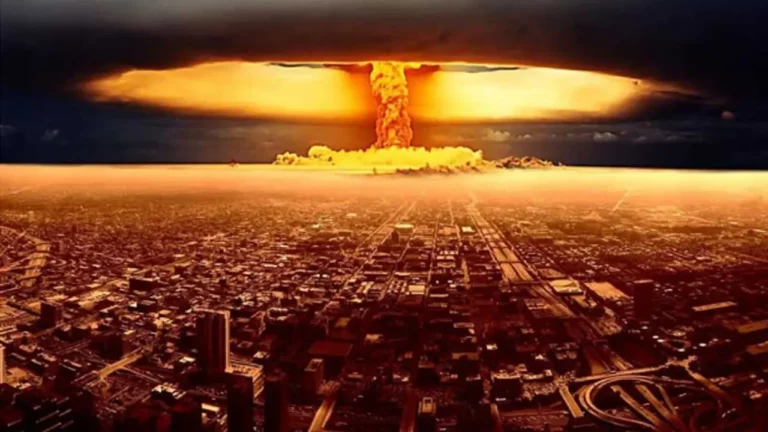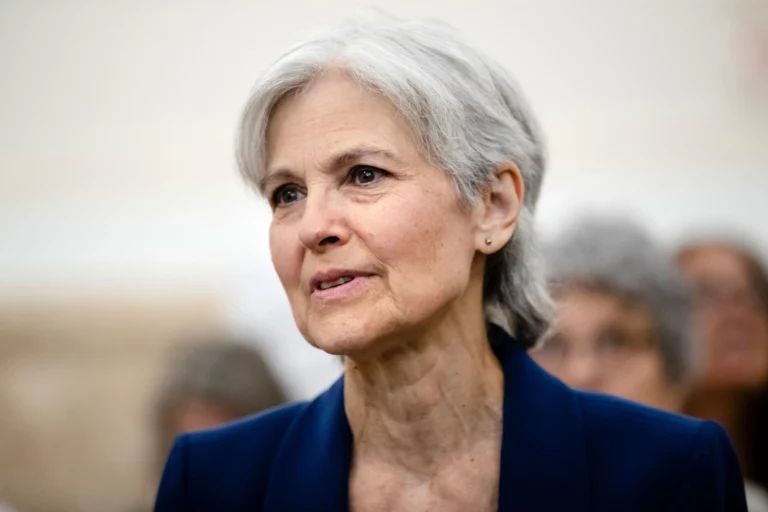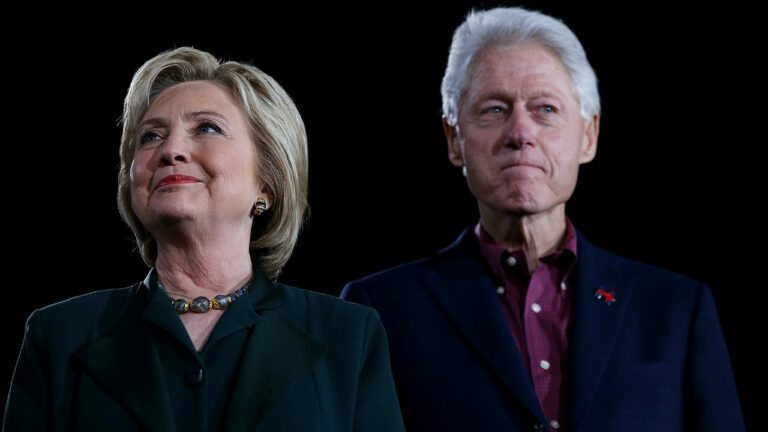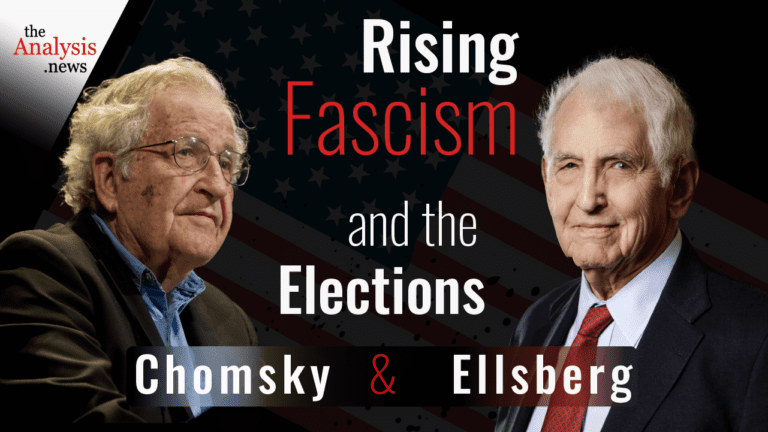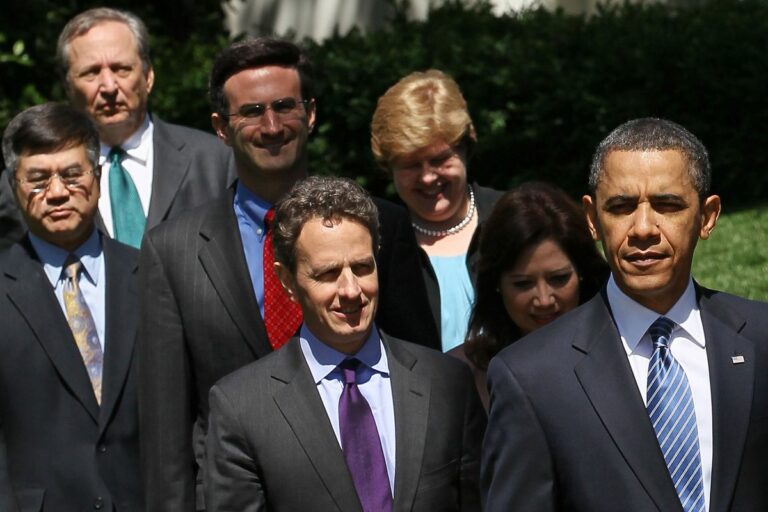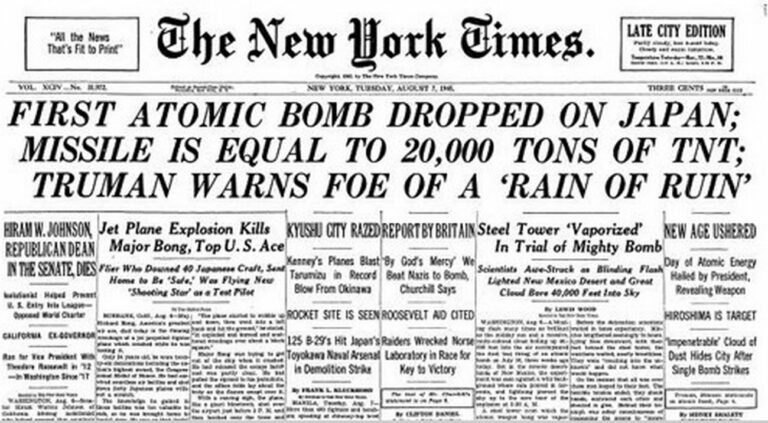Podcast: Play in new window | Download | Embed
Subscribe Apple Podcasts | Spotify | Android | iHeartRadio | Blubrry | Email | TuneIn | Deezer | RSS
On Reality Asserts Itself with Paul Jay, James Early says the economic indices of the black community are worse at the mass level than they were before Obama became president. This is an episode of Reality Asserts Itself, produced November 19, 2013.
TRANSCRIPT
Paul Jay
Welcome to the Real News Network. I’m Paul Jay in Baltimore, and welcome to Reality Asserts Itself. We’re continuing our series of interviews with James Early, who now joins us in the studio. Thanks for joining us again, James.
James Early
Good to be back.
Paul Jay
So James works at the Smithsonian, and he works at the Center for Folk Life and Cultural Heritage. He’s a former member of the Board of Trans Africa. He’s also on the board of the U.S. Cuba Cultural Exchange. We’re going to get into your views on Cuba, which you’ve visited many times.
I wanted to pick up from part one, and if you haven’t watched part one, you should because that’s the biographical section. It’s the way into all the interviews. I want to now jump ahead to some of the more current issues and pick up President Obama’s fight with Reverend [Jeremiah] Wright. The whole idea is that the speech, first of all, was built as a speech on race. First of all, I think it needs to be said it wasn’t primarily a speech about race. It was primarily a speech about the blowback in U.S. foreign policy, and he attacked Reverend Wright for saying there was, which is crazy.
I mean, nobody that analyzes foreign policy doesn’t think the U.S. Policy has had blowback. Let’s set that aside and deal with the race part. More or less, the President accused Reverend Wright of living in the past, and this idea that we’re in a racist society and framing things in terms of white and black is an archaic way, and we’ve moved past that. What do you make of that?
James Early
First of all, President Obama’s policies have demonstrated, post the controversy around Reverend Wright, that the social indices, the economic indices of the black community, are worse at the mass level than they were before. That’s not a total result of the policies of President Obama. It’s the crisis of capitalism which they like to pretty up and call the financial crisis. The fact of the matter is that the history of racism is a living legacy. We have made much progress, but our jails are filled with young black men, increasingly young black women, brown young men, and brown women—our health situation, even for those in the upper class. The accumulative legacy of the things we were fed and the communities we were forced to live in. The racism against Obama and his family itself is evidence that we are not in a post-racial society. Obama did not look reality in the face and help the American people to grapple with that complex reality.
Grappling with that complex reality, first and foremost, means that his election is an advance, not only for the black community, but it’s an advance for justice thinking fair-minded people in the United States. All of those young white kids of voting age who stepped forward, who wanted to see a new humanity, a new world. It is a disappointment that he has come up with the theatrics to satisfy some kind of mass perspective that we are beyond race.
Paul Jay
Some people argue — some people, for example, Glen Ford, who we’ve interviewed on The Real News a bunch of times. In some ways, his election was almost a setback in kind of two ways. One, it kind of strengthened this idea that this new black elite — that you can make it. If you work hard, you’re smart, and you follow the American dream, it doesn’t matter if you’re black anymore; you can make it. So it kind of gives this idea of being in a post-racial society. I think Glen’s argument suggests that it’s more so that it’s kind of taken the wind out of any mass movement. That he kind of does things that a white President couldn’t get away with, in the same way amongst African Americans.
James Early
Yeah. I don’t think that’s the sound argument at all. There is a construct called bourgeois democracy. When you break it down, and I like to go to the Greeks to break it down, democracy, the demos, the ordinary people quasher, the power of ordinary people, the power of ordinary people to imagine that they can do better in whatever ideological political, economic circumstance they are in. Obama is a product of the black community’s thinking and actually setting the circumstances to do better, notwithstanding his contradictions. I think we have to see that as an advance, and with that advance, other contradictions are revealed: class interest, elite interest in contrast to mass interest.
So when you look at what the Obama administration policies are about, first of all, who did he bring in as his team? They’re all Clintonites. Save one or two black people, here or there, but it was not a real vision of how to advance American democracy. I think it was a very ego-driven, kind of that, I Obama, this articulate, well dressed, black man, and then he does not bring a team with him. He does not bring a team that sounded anything like he sounded in the election. It is an advance that has brought new contradictions. I think it is a real mistake to see it as having pushed us back and having undermined mass movements.
Now it is true. I think that Obama demobilized his base. That’s both black people and all of those young white people, Latinos, Asian Pacific Americans, and gay and lesbian people, and they all have been beating on his door. Cornel West and Tavis Smiley were the first to come out and say, let’s look in the mirror of reality here. I think they made some tactical errors. They allowed the debate to become over personified in their names. They did not build a broad enough network of folks, who within less than a year, all began to come and beat on his door as an individual would be saying, but you are not meeting the policy promises for which you voted us and for which you ask us to vote you in. So it is a complex situation, but it is an advance in the context of this.
Paul Jay
I would think there’s another way, in a sense, you could call it an advance. At least in my point of view, if you overemphasize the race question, you can also de-emphasize it, but if you use that prism of race too much, then I can understand that having a black President can kind of diminish how people would understand that. The other thing is that it should make class that much clearer; this black elite is now part of the elite. The real issue is, is the elite?
James Early
Well, this is an analytical problem that progresses, and leftists have had from time in memoriam. When you look at the history of American republics from Canada to Argentina, including all of the Caribbean, the development of the modern nation-state was never a pure class question. It was always a racialized and gendered class question, but the racial dimensions of that question were drawn to extraordinary extreme proportions by the great philosophers of the world. Sometimes those of which were very progressive on a lot of things, and those who went to great ends to rationalize the dehumanization of these enslaved Africans. That they were chattel, that they were less than human beings, that the Bible, the sons and daughters of Ham, and so forth, and so on.
So the class question was always deeply racialized. We see the continuing legacy, notwithstanding advances, not only here in the United States, but in a country like Brazil where over half the population identifies itself as black, and beyond half of the population is African in culture; that is ways of knowing and doing. Blonde, green, blue-eyed people who know nothing but those African religions. Those African comportments. That’s not a biologically driven issue. It’s a socially learned behavior.
So it is a complex issue that we still have not come to grips with. Even in Cuba today, this debate of not wanting to avow the historical evolution of racial identity in a positive sense.
Now racial identity can end up in ultranationalism, alter racial perspectives, Yakub and the devil theory of the nation of Islam, that white people were really coming from the devil. The implication being that we were the pristine divine people. So they can go to extremes, but we still need to grapple with the fact that racism is still very much the ethos, notwithstanding advances, as I would see it, of what goes on in America today. That’s by our jails, indexed by poverty, indexed by health circumstance. Indexed by the popular cultural perspectives, including black people sometimes being complicit in these behaviors, but that all evolves from the period of slavery.
Paul Jay
We’re in Baltimore, where the majority of the City Council is black. The Mayor is black. The most I would think of the ownership class in Baltimore is white. When you’re talking real estate and businesses, but there’s a significant black ownership class here too.
I think part of the argument is that — I know Glenn makes this argument, which I think has a lot of merit to it; that this stratum is who really reaped the benefits of the civil rights movement. They will be able to break through this wall. Except now, it’s reinforced, in many ways, the class relations. You can see it in a city like Baltimore. If this was an entirely white City Council and a white Mayor, it would be a different class struggle in the city.
James Early
It indeed would be. Race is an optic in there, but I think we learned something about human nature in general. Any place on the history of the planet for as long as we’ve had recorded history, you’re going to have class distinctions. The question is, which class wins out? There is nothing inherently good about being black. There’s nothing inherently good about being a woman. There’s nothing inherently good about being gay, transgender. We have tended to think that because of the nature of the oppression against these people that we could flip it on its head.
Among black nationalists, narrow black nationalists, as we used to describe them. They would come up with the slogan, but we were Kings and Queens in Africa. Well, Kings and Queens come from a feudal social relationship of serfs and enslaved people, but that was the flip side of the absolutism of white supremacy. That being white was divine, and being nonwhite was less than human. It’s a lot more complex than that. So we do have to grapple with these class questions.
It’s not a problem that we have unequal abilities. The problem is unequal access. So that even with equal ability, even with fairness and justice, we will end up with a society that some people can do math better than others, and some can play baseball. It will just not be in these large black racial categories that we have. Each according to his or her ability, each according to his or her need. If one works very, very hard and honestly to produce beans and rice on the table but can’t produce enough, he or she should be praised as an outstanding, noble, hard-working human being. If someone over here makes a surplus, their outstanding nature comes from sharing the common good.
Paul Jay
We’re going to get into this whole idea; from each and to each because we’re going to talk about Cuba and they’re having a big problem.
James Early
They’re having a big problem.
Paul Jay
How you get from and who you give to. Let me back up one step within this. When you talk about race, and when you talk about class, race is kind of straightforward. You can get race and racism. You can get prejudice. You can’t go to this school. You can’t get in this restaurant. You’re not going to get that job. Class seems a little more abstract, and it seems to me there’s a very simple way to talk about class. Even though it’s more complex, but you almost never hear it talked about this way. It’s about who owns stuff. Political transformation is going to change. Who owns stuff? Not just about higher taxation and fair distribution, which is all good, but that isn’t going to change much. In fact, you probably won’t get to fairer distribution if you don’t change who owns stuff.
I know in Baltimore, when we’re talking and interacting with a lot of young black activists in town — many of them are actually going to be having offices in our new building here, which we’re going to show you more of the new building soon. This is not at the center of anyone’s discourse—the issue of ownership and how the concentration of ownership leads to the concentration of political power.
James Early
Well, to some extent, it is about monopoly corporations. Monopolies who own politicians, who buy on both sides of the aisle, Democrats and Republicans. The redistribution issue within the context of the system in which we live, the gradual tax issues. These are little things that move us towards the notion that there are owners and there are people who don’t own.
I know I will not see a society in which everyone will own the means of production. So one of the things we have to look at is progressive reform. That is, is it bad to be an owner? Or is it bad to be an owner who does not distribute in fair and just ways with the people who actually produce that wealth? Well, I say to young people, somebody’s got to be a banker. I don’t want to keep my money in a mattress.
Paul Jay
Well, let me back up because I’m trying to phrase this in terms of race and some of the debate that goes on here in Baltimore, but lots of places. The idea is that black entrepreneurship is something to be aimed for. The idea that some individual, a black person, will wind up running or owning a big company or a small business; that’s the model for change. The idea of collective action and a mass movement for change seems secondary now to the idea of building successful businesses.
James Early
I think you’re right in terms of what people are being asked to consider as success. But I don’t think owning something in and of itself, in the context of the system that we live in, because it’s not a revolutionary moment where we’re going to get a new system. So what do we do in the interim? We need good entrepreneurs who will provide wholesome food within black communities where there is un-wholesome food. Who will provide it at fair prices with a humane vantage point. We need socially responsible people who have the skills to do that. To live in the ideal and wait for the moment in which we have a revolution, and we all may own the means of production is probably eons out into the future.
Paul Jay
I think that’s not the choice. It’s not some way off in the day when there’s some magic moment and all of a sudden there’s some revolution. There’s a fight right now over defense of what already is in the public sector. There’s a fight right now over privatization. There’s issues even at the municipal level. Is the bus service going to be private or public? Is the water going to be private or public? Are you going to lay off public servants and outsource stuff to private consultants? [crosstalk 00:15:37]
James Early
The discussion about workers owning businesses —
Paul Jay
Developing coops.
James Early
And developing coops, but even in that structure, there is going to be someone who has to make ultimate decisions. It’s not going to be 5,000 people sitting down every time, just saying we’re going to vote on the next 1,000 decisions that we have to make. That’s going to be vested into someone. You have those natural divisions of labor, if you will. There are going to be rubs and tension in the; how can we reduce it and have that basically be characterized by a productive tension that really moves towards — what is the socially responsible and just thing to do?
It’s not going to be a clear through of workers simply having public control over the transportation system, and everything is going to be [crosstalk 00:16:27] human greed also. Humans seem to have a tendency towards wanting to take surplus, wanting to commit violence against others. So there’s going to be official violence, for example, of a fair and just police force who’s going to say we cannot have that kind of behavior of men treating women that way, or parents treating children, slapping children on buses and public transportation.
That’s the sociology, the complexity of the sociology, but how to put it on a fair and just basis, on a human basis, rather than on the basis of surplus, ownership, monopoly, and raw crude power. I think it’s the challenge before us.
Paul Jay
Okay, well, much longer discussion, which we’ll get into. In the next segment, we’re going to talk about a place that is trying to grapple with all this, in what is supposed to be a socialist system, and that’s Cuba, which James has been to many times.
James Early
Dear to my heart.
Paul Jay
So join us on the next segment of our interview with James Early on Reality Asserts Itself on The Real News network.
END

